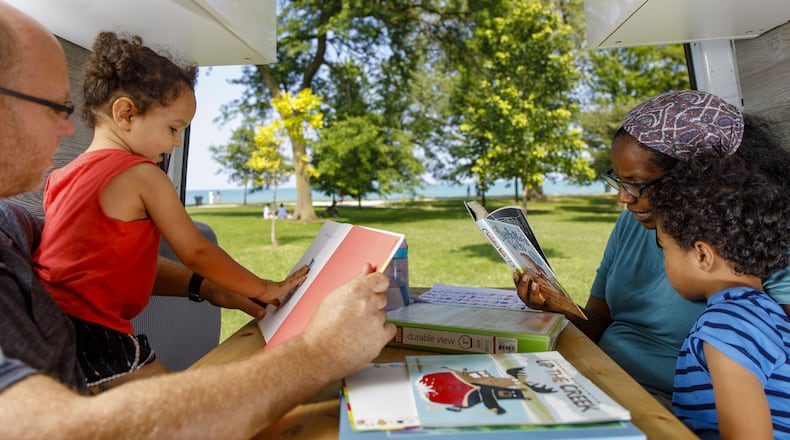Griffin Kubik spent two years at Chicago Waldorf preschool before his parents pulled the plug on his formal education.
The 6-year-old now spends his days with his parents and his 2-year-old sister, Adair, traveling in their newly purchased van.
“For our family, the experience of learning while traveling outweighs the benefits of going to school,” said Griffin’s mom, Tiana Kubik, co-owner of TK Photography, which is based in Chicago. The family’s trips include visiting Toronto, Montreal, Banff and Jasper, Canada.
Griffin is one of about 3.5 million home-schooled children in the nation. The number of kids who are home-schooled has surpassed children at charter schools and has been growing by 3 to 8% each year since 2012, according to the National Center for Education Statistics and analyses from Brian Ray, homeschooling researcher at the National Home Education Research Institute.
That growing popularity can be attributed to a number of factors, ranging from parents’ ideology to more practical issues including globally-focused families who don’t want to tie their children to a set way of learning, school-based issues, and a desire for religion-based education, said Stephen Spriggs, managing director of William Clarence Education, a London-based education consultancy that works with families around the world.
“It’s becoming more acceptable and mainstream, so parents who previously wanted to but couldn’t are now open to seeing what options there are,” Spriggs said.
Home schooling also can be altered to fit a family’s lifestyle. There are parents who teach kids at home loosely; and others who do a full home schooling program delivered by tutors and teachers in the home, Spriggs said.
“School isn’t a one-size fits all approach,” he said.
The Kubiks practice unschooling, a form of home education that allows the child’s interests and curiosities to create the path for learning. They live out of their van, and work on reading and writing while they travel, but they also try to go with the flow, depending on their location and their children’s interests. “Then, we help them dive into those topics,” Tiana Kubik said. “We also sign the kids up for activities if we are in any one area for more than a couple of weeks.”
About the Author
Keep Reading
The Latest
Featured


